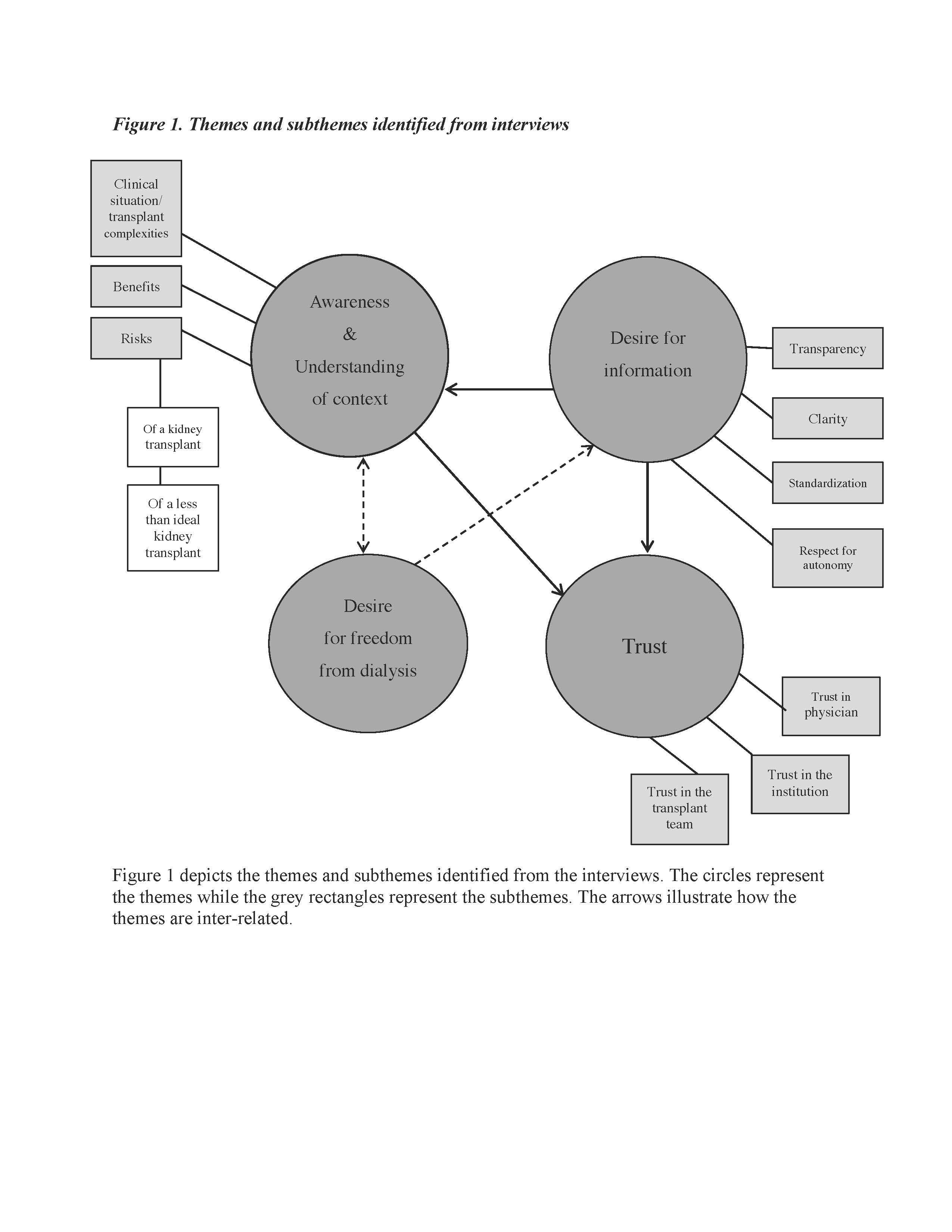Waitlisted and Transplant Patient Perspectives on Expanding Access to Deceased Donor Kidney Transplants
1Johnson Shoyama School of Public Policy, University of Saskatchewan, Saskatoon, SK, Canada, 2Saskatchewan Transplant Program, Saskatchewan Health Authority, Saskatoon, SK, Canada, 3Division of Nephrology, Department of Medicine, College of Medicine, University of Saskatchewan, Saskatoon, SK, Canada, 4, Department of Internal Medicine, Max Rady College of Medicine, Rady Faculty of Health Sciences, University of Manitoba, Winnipeg, MB, Canada, 5Department of Internal Medicine and Department of Immunology, Max Rady College of Medicine, University of Manitoba, Winnipeg, MB, Canada, 6Canadian Blood Services, Edmonton, AB, Canada, 7University of Saskatchewan, Saskatoon, SK, Canada
Meeting: 2022 American Transplant Congress
Abstract number: 726
Keywords: Donors, marginal, Organ Selection/Allocation, Waiting lists
Topic: Clinical Science » Kidney » 32 - Kidney Deceased Donor Selection
Session Information
Session Name: Kidney Deceased Donor Selection
Session Type: Poster Abstract
Date: Saturday, June 4, 2022
Session Time: 5:30pm-7:00pm
 Presentation Time: 5:30pm-7:00pm
Presentation Time: 5:30pm-7:00pm
Location: Hynes Halls C & D
*Purpose: A concerning number of kidneys (expanded donor criteria, extended criteria, or marginal kidneys) are discarded yearly, and novel solutions are needed to solve the shortage of kidneys available for transplant. The purpose of this study was to explore patient perceptions regarding the use of these less than ideal kidneys.
*Methods: A qualitative description study was performed with patients who had received a less than ideal kidney in the past, and patients awaiting transplant who could potentially benefit from one. Semi-structured, one-on-one interviews were conducted virtually, which explored perceived quality of life, perceptions of less than ideal kidneys, risk tolerance for accepting one, and educational needs to make such a choice. The interviews were transcribed verbatim and thematic analysis was used to analyze the data.
*Results: Sixteen patients (n=10 pre-transplant; n=5 post-transplant) from two provinces in Canada participated. Participants were a mean of 65.5±8.8 years old. Four inter-related themes became prominent including 1) patient awareness and understanding of their situation or context 2) a desire for information 3) a desire for freedom from dialysis and 4) trust. Subthemes of transparency, clarity, standardization and autonomy were deemed important for participant education. The majority of participants (n=8/11), indicated that between 3 and 5 years off of dialysis would make the risk of accepting a less than ideal kidney feel worthwhile.
*Conclusions: These findings indicate that patients are comfortable to accept a less than ideal kidney for transplant in situations where their autonomy is respected, they are provided clear, standardized, and transparent information, and when they trust their physician.
To cite this abstract in AMA style:
Rosaasen C, Rosaasen N, Mainra R, Trachtenberg A, Ho J, Parsons C, Delaney S, Mansell H. Waitlisted and Transplant Patient Perspectives on Expanding Access to Deceased Donor Kidney Transplants [abstract]. Am J Transplant. 2022; 22 (suppl 3). https://atcmeetingabstracts.com/abstract/waitlisted-and-transplant-patient-perspectives-on-expanding-access-to-deceased-donor-kidney-transplants/. Accessed February 27, 2026.« Back to 2022 American Transplant Congress

